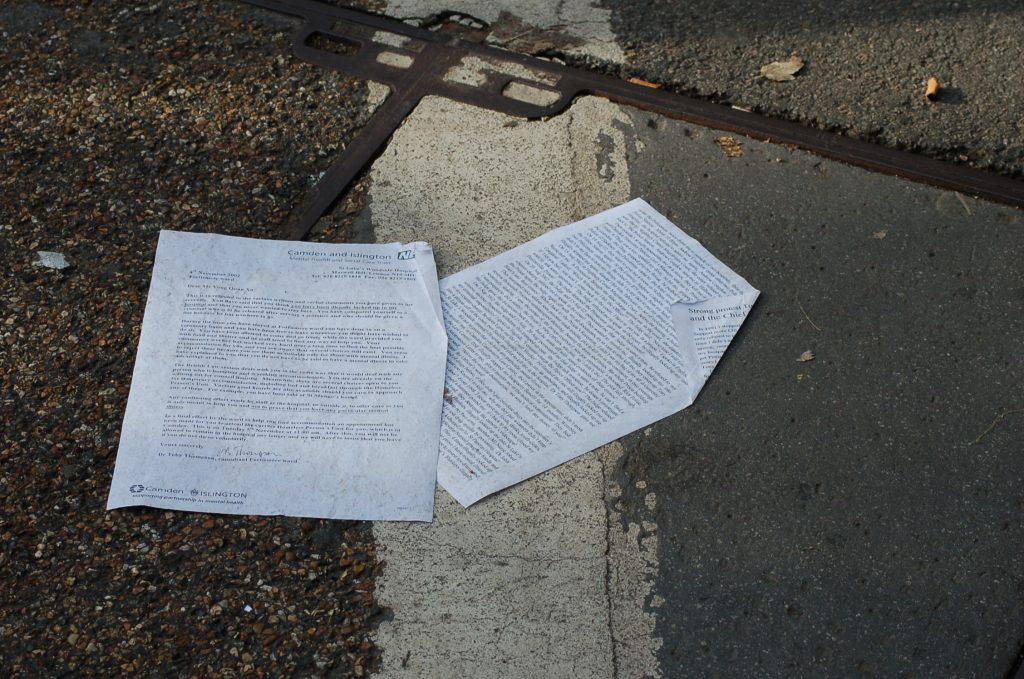 Lawyers owe a fiduciary duty to their clients, corporate directors owe a fiduciary duty to the corporation’s shareholders, and trustees owe a fiduciary duty to the beneficiaries of a trust. So, what is a fiduciary duty? Simply put, it’s a duty of the “fiduciary” (i.e., lawyers, corporate directors, trustees, etc.) to act solely in the interest of the person to whom the duty is owed, and the law does not tolerate breaches of that duty (whether by acts of self-dealing, incompetence, etc.). If you find yourself in a situation where you believe someone has breached their fiduciary duty to you, you may be entitled to judicial relief for the harm you suffered because of that breach of duty.
Lawyers owe a fiduciary duty to their clients, corporate directors owe a fiduciary duty to the corporation’s shareholders, and trustees owe a fiduciary duty to the beneficiaries of a trust. So, what is a fiduciary duty? Simply put, it’s a duty of the “fiduciary” (i.e., lawyers, corporate directors, trustees, etc.) to act solely in the interest of the person to whom the duty is owed, and the law does not tolerate breaches of that duty (whether by acts of self-dealing, incompetence, etc.). If you find yourself in a situation where you believe someone has breached their fiduciary duty to you, you may be entitled to judicial relief for the harm you suffered because of that breach of duty.
However, even if you did in fact suffer the harm and have a solid cause of action, you must ensure that you are meeting all of the statutory deadlines for filing a lawsuit against the party who breached their duty. Otherwise a prescription statute, which sets the peremptive period (the amount of time you have to file a lawsuit against another party after certain events take place), may prevent a court from being able to hear your case. It is important in these situations to seek legal counsel immediately upon discovering the breach of duty against you, because a good lawyer will be able to inform you of the relevant deadlines for filing suit. The following case demonstrates how waiting too long to file, and failing to provide certain paperwork to the party who breached its duty to you, can result in the court refusing to hear your case.
In this case, out of the Louisiana Fourth Circuit Court of Appeals, Marguerite and Christine Hartman (“the Hartmans”) were sisters who filed a lawsuit against JPMorgan Chase Bank for a breach of their fiduciary duty. The Hartmans were beneficiaries of a trust, a fiduciary relationship where JPMorgan acted as trustee to manage money from the Hartmans’ father’s wrongful death settlement for the benefit of the sisters. In the lawsuit against JPMorgan, the sisters alleged that after they came of age and were eligible to receive the money, their mother had forged their names on documents to the bank to terminate the existing trust and wire the money to the mother directly. The sisters also claimed that JPMorgan had wrongfully mailed all their trust-related statements to their grandparents’ address, not their own actual home address, making it easier for their mother to commit these fraudulent acts. However, JPMorgan brought evidence showing that the only address they had ever had on file was the grandparents’ address, and because the trust statute in Louisiana permitted that address to be used for mailing of official documents, they had not erred in their actions.
 Louisiana Personal Injury Lawyer Blog
Louisiana Personal Injury Lawyer Blog


 If you believe you have been misrepresented by an attorney, or that your legal counsel in any way acted wrongfully or neglected your legal needs, you may have a cause of action for legal malpractice. However, the time limit for when you may bring such an action to court is relatively short, and very strictly enforced, so it is important to retain new counsel as soon as the legal malpractice occurs or as soon as you first learn about it, so that you do not miss your window of opportunity to bring a malpractice claim. The following case demonstrates the problems that can arise when you wait too long to bring a legal malpractice claim before the court.
If you believe you have been misrepresented by an attorney, or that your legal counsel in any way acted wrongfully or neglected your legal needs, you may have a cause of action for legal malpractice. However, the time limit for when you may bring such an action to court is relatively short, and very strictly enforced, so it is important to retain new counsel as soon as the legal malpractice occurs or as soon as you first learn about it, so that you do not miss your window of opportunity to bring a malpractice claim. The following case demonstrates the problems that can arise when you wait too long to bring a legal malpractice claim before the court.  Be careful what your getting into when you attend a timeshare presentation. While you may get a “free” vacation for sitting through the sales pitch, you could be getting into more trouble then it is worth. This was the case for over one hundred purchasers of timeshares who bought from Festiva Resorts, LLC and Festiva Development Group, LLC. Festiva held sales presentations in New Orleans, Louisiana, for points based timeshares memberships.
Be careful what your getting into when you attend a timeshare presentation. While you may get a “free” vacation for sitting through the sales pitch, you could be getting into more trouble then it is worth. This was the case for over one hundred purchasers of timeshares who bought from Festiva Resorts, LLC and Festiva Development Group, LLC. Festiva held sales presentations in New Orleans, Louisiana, for points based timeshares memberships. Putting on a festival at the New Orleans Superdome is a lot of work. One vital part of that work is to confirm that the insurance policy actually covers the activities and location of the festival. Festival Productions, Inc. – New Orleans (“FPINO”) learned this lesson the costly and hard way. The Louisiana Fourth Circuit Court of Appeal’s decision shows the gaping hole in FPINO’s coverage that was entirely avoidable.
Putting on a festival at the New Orleans Superdome is a lot of work. One vital part of that work is to confirm that the insurance policy actually covers the activities and location of the festival. Festival Productions, Inc. – New Orleans (“FPINO”) learned this lesson the costly and hard way. The Louisiana Fourth Circuit Court of Appeal’s decision shows the gaping hole in FPINO’s coverage that was entirely avoidable.  Credibility is an important factor that the court requires in a witness to determine truthfulness in their testimony. If the court does not believe a plaintiff or a defendant he could lose his case. In this case, the plaintiff, lacked credibility due to inconsistencies in his testimony about his pre-existing medical condition.
Credibility is an important factor that the court requires in a witness to determine truthfulness in their testimony. If the court does not believe a plaintiff or a defendant he could lose his case. In this case, the plaintiff, lacked credibility due to inconsistencies in his testimony about his pre-existing medical condition.  Insurance policies can still be intact even if the insured fails to pay if the insurance company fails to follow the proper protocol in informing the insured that he or she no longer has coverage. State Farm found themselves liable for coverage in just a situation.
Insurance policies can still be intact even if the insured fails to pay if the insurance company fails to follow the proper protocol in informing the insured that he or she no longer has coverage. State Farm found themselves liable for coverage in just a situation.  Medical malpractice generally involves subpar medical treatment that causes injury or death. The plaintiff, either the injured person or that person’s family, would need to show the court that the healthcare provider was negligent while administering the medical treatment. On the other hand, the healthcare provider as the defendant may argue that there was no negligence. The provider may also argue that the court should dismiss the case all together because the plaintiff does not have the evidence to show any wrong-doing. In the face of such opposition from defendants, there is a need for a good lawyer to build the strategy and prepare the case.
Medical malpractice generally involves subpar medical treatment that causes injury or death. The plaintiff, either the injured person or that person’s family, would need to show the court that the healthcare provider was negligent while administering the medical treatment. On the other hand, the healthcare provider as the defendant may argue that there was no negligence. The provider may also argue that the court should dismiss the case all together because the plaintiff does not have the evidence to show any wrong-doing. In the face of such opposition from defendants, there is a need for a good lawyer to build the strategy and prepare the case. Anytime you get in a car can be a life and death situation. While no one ever wants to think about the worst, what will your insurance cover if the worst does happen. Your policy may not only need to cover you and those injured, it could need to cover your employer if you were driving in the scope of your employment.
Anytime you get in a car can be a life and death situation. While no one ever wants to think about the worst, what will your insurance cover if the worst does happen. Your policy may not only need to cover you and those injured, it could need to cover your employer if you were driving in the scope of your employment. Our court system includes rules that aim to promote court efficiency. Some of the rules may sound intimidating, but having a good attorney, one who is able to build a strong strategy and with strong knowledge of the rules, makes the necessary difference. One such rule is called res judicata – Latin for “a matter judged.” Unfortunately, Mr. Springer, a resident of Nannie O’Neal Senior Apartments on Oneal Street in DeRidder, Louisiana recently lost his case because of failing to understand how this rule applied.
Our court system includes rules that aim to promote court efficiency. Some of the rules may sound intimidating, but having a good attorney, one who is able to build a strong strategy and with strong knowledge of the rules, makes the necessary difference. One such rule is called res judicata – Latin for “a matter judged.” Unfortunately, Mr. Springer, a resident of Nannie O’Neal Senior Apartments on Oneal Street in DeRidder, Louisiana recently lost his case because of failing to understand how this rule applied.